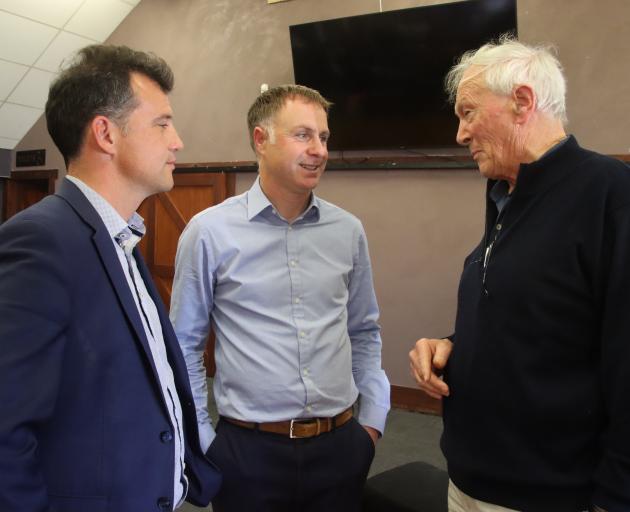National's MP for North Shore is the party's shadow spokesman for local government and he and Southland MP Joseph Mooney spoke to a crowd of about 100 people about the Three Waters reform in Gore yesterday.
The reforms were a "complete disaster", Mr Watts said.
"That’s a real shame because when you think about water and the importance of water in all of our lives... water should be an apolitical conversation."
"Water should be done in a way which is in the best interests of this country, our communities. In reality under this Labour Government it has not been like that."
The majority of New Zealanders opposed the reforms, he said.
At the start, councils were given the option of whether to be part of the reforms or not but now the reforms were being forced on them, he said.
There had been 88,000 submissions made to the Water Services Entities Bill select committee.
"I can count the number of submissions that were in support of the bill on my two hands and the remainder of that was significant opposition."
National was opposed to the reforms for reasons which included the reforms were an asset grab.
Communities have paid for the water infrastructure through decades of rate paying, he said.

The 50-50 co-governance model that would run the new service would not work as most of the councils and iwi would not have a say in how it was run, he said.
"Loss of local voice is one of the key issues both Maori and non-Maori have with the governance model that’s currently on the table."
Another problem with the model was any decision making required 75% of the members to be in agreement.
Sixty-seven councils throughout the country would become part of four entities.
The Government believed centralising the provision of water services was the best option, he said.
"Big is not always better."
Communities should be able to deal with their own issues, he said.
"It is not the role for central government to come in and tell local government how they need to manage local assets."
National has said if elected in 2023 it would repeal the Water Services Entities Act within 100 days of it coming to power.
The act would not come into effect until July 2024 which would give National time to repeal it.





